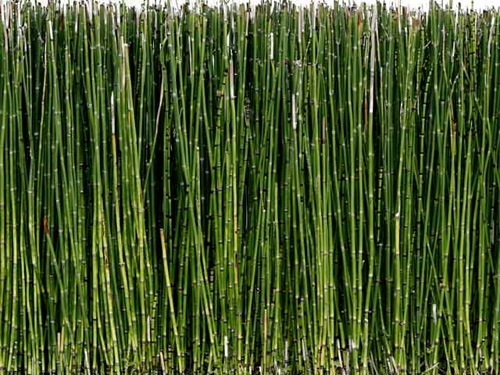- Horsetail is a plant. The above ground parts are used to make medicine.
Contents
Uses
- Horsetail is used for “fluid retention” (edema), kidney and bladder stones, urinary tract infections, the inability to control urination (incontinence), and general disturbances of the kidney and bladder.
- It is also used for balding; tuberculosis; jaundice; hepatitis; brittle fingernails; joint diseases; gout; osteoarthritis; weak bones (osteoporosis); frostbite; weight loss; heavy menstrual periods; and uncontrolled bleeding (hemorrhage) of the nose, lung, or stomach.
- Horsetail is applied directly to the skin to treat wounds and burns.
- There have been reports of horsetail products being contaminated with a related plant called Equisetum palustre. This plant contains chemicals that can poison cattle, but toxicity in people has not been proven.
Benefits
- The chemicals in horsetail may have antioxidant and anti-inflammatory effects. Plants related to horsetail contain chemicals that work like “water pills” (diuretics) and increase urine output. But it isn’t clear whether horsetail has this effect.
Cautions
- Horsetail is POSSIBLY UNSAFE when taken by mouth long-term. It contains a chemical called thiaminase, which breaks down the vitamin thiamine. In theory, this effect could lead to thiamine deficiency. Some products are labeled “thiaminase-free,” but there is not enough information available to know if these products are safe.
- Pregnancy and breast-feeding: There is not enough reliable information about the safety of taking horsetail if you are pregnant or breast-feeding. Stay on the safe side and avoid use.
- Alcoholism: People who are alcoholics are generally also thiamine deficient. Taking horsetail might make thiamine deficiency worse.
- Diabetes: Horsetail might lower blood sugar levels in people with diabetes. Watch for signs of low blood sugar (hypoglycemia) and monitor your blood sugar carefully if you have diabetes and use horsetail.
- Low potassium levels (hypokalemia): Horsetail might flush potassium out of the body, possibly leading to potassium levels that are too low. Until more is known, use horsetail with caution if you are at risk for potassium deficiency.
- Low thiamine levels (thiamine deficiency): ‘There is a concern that horsetail could make thiamine deficiency worse.
interactions
Moderate Interaction Be cautious with this combination
- Lithium interacts with HORSETAIL: Horsetail might have an effect like a water pill or “diuretic.” Taking horsetail might decrease how well the body gets rid of lithium. This could increase how much lithium is in the body and result in serious side effects. Talk with your healthcare provider before using this product if you are taking lithium. Your lithium dose might need to be changed.
Other Names
Asprêle, Bottle Brush, Cavalinha, Coda Cavallina, Cola de Caballo, Common Horsetail, Corn Horsetail, Dutch Rushes, Equiseti Herba, Equisetum, Equisetum arvense, Equisetum hyemale, Equisetum telmateia, Field Horsetail, Herbe à Récurer, Horse Herb, Horsetail Grass, Horsetail Rush, Horse Willow, Paddock-Pipes, Pewterwort, Prele, Prêle, Prêle Commune, Prêle des Champs, Queue-de-Chat, Queue-de-Cheval, Queue-de-Rat, Queue-de-Renard, Scouring Rush, Souring Rush, Shave Grass, Shavegrass, Spring Horsetail, Toadpipe.
References
Source: WebMd, “Horsetail”, http://www.webmd.com/vitamins-supplements/

